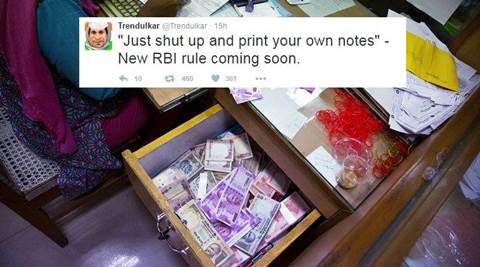In its latest move, the Reserve Bank of India (RBI) has today withdrawn its restriction of depositing only Rs 5,000 by customers in banks in one go KYC compliant accounts. This comes after reports that many banks were not accepting cash more than Rs 5,000, citing they were not given written order to do so. Yesterday, Union Finance Minister Arun Jaitley had said that no questions would be asked if any amount of junked currency is deposited in one go, but repeated deposits may raise queries.
A plea was also filed in the Supreme Court same day, challenging central bank’s latest order to restrict deposits more than Rs 5,000 using now banned Rs 500 and Rs 1,000 currency notes. The circular had 11 days before the window to deposit the withdrawn banknotes is to close on December 30. As per the application filed by advocate Sangam Lal Pandey, it is ‘very unfortunate’ that once the top court has directed the Centre to ease the hardships caused to the public, the government has chosen to fix a limit for depositing the withdrawn notes.
He also added that nolaw in the country can fix a limit on the bank account holder to deposit the money in their accounts, therefore the RBI’s Monday circular is illegal and against the Constitutional provisions. As per the latest RBI data, Rs 12.44 lakh crore worth of old notes has been deposited back into the banking system as of December 10. The total value of the old Rs 500 and Rs 1,000 currency notes in circulation as on November 8 was Rs 15.44 lakh crore.
You may also like to watch this video
The apex court, last week refused to interfere with the government’s demonetisation move, including decisions related to amending the mandated Rs 24,000 withdrawal limit or extending the exemptions granted to the use of demonetised notes at public utilities, government hospitals and railway ticket counters, while observing that the government was “responsive and sensitive enough” to do whatever is possible to ease “hardships and sufferings” caused to the general public.


